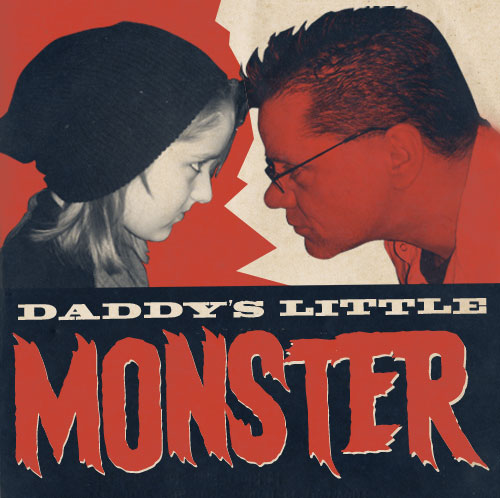
Published on March 25, 2011
NOTE: Through the magic of the internet, I’ve been able to track down the archives for my very first writing gig: DADDY’S LITTLE MONSTER was a tag-team review column I did for Rue Morgue’s blog with my then-11-year-old daughter, Emma. Emma’s now 18 and getting ready to head off to university in a month, so this seems like as good a time as any to revisit these.
I blame Guillermo Del Toro. It was the first pics of Ron Perlman and Doug Jones in full Hellboy/Abe make-up that turned four-year old Emma into the horror kid she is today. While she’s enjoyed the Hellboy movies, she’s been wanting to kick things up to the next level. For some time, she’s been bugging me to get a look at his more mature work, especially Pan’s Labyrinth. I’ve been hesitant: the film is quite heavy, mature and very brutal. There’s not a lot of “fun” to be had, like with our previous choices. After a lot of thought, I decided maybe it was time. And the end result? Read on…
Ron: So, Pan’s Labyrinth. We’ve watched it, we’ve let it soak in a bit. What did you think?
Emma: I liked it a lot. I think because it was “real” horror.
Ron: Now, what do you mean by “real”? A lot of folks would classify this as “dark fantasy” or a “fairy tale for adults,” but not horror.
Emma: Because the monsters aren’t what we should fear, that the humans are the real monsters and that makes it more scary. People are very brutal to each other in this film and with no real reason, either. That, to me, is real horror.
Ron: Well, definitely in the case of Vidal. He’s certainly the most brutal and horrific character in the movie, isn’t he? The brutality that he exhibits, and the fact that he’s so cold and unemotional about it – he doesn’t seem to feel anything – I think that makes him more horrific than The Pale Man, and he’s a walking nightmare.
Emma: ALL the worst stuff in the film is done by Vidal.
Ron: Now, we discussed the fact that this film has a different kind of violence than you were used to. No brain-eating, no “splatstick”. Keeping that in mind, from your view, is this a film that parents should be comfortable viewing with their kids?
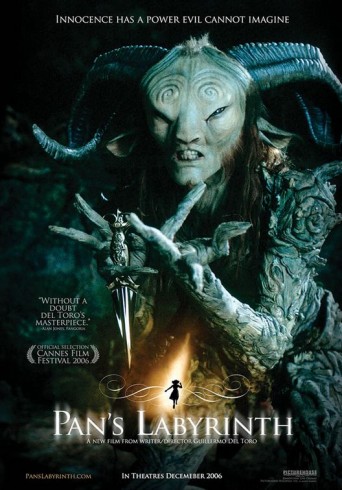 Emma: Oh God, no. No, I wasn’t even prepared for the violence here – it was brutal! When I first heard about Pan’s Labyrinth, I had a completely different idea what it was about. I thought it would be about this girl who ends up in this other world and she has to escape from these creatures who are horrific. I thought would be like Alice In Wonderland, but with evil creatures and it’s not like that at all! The monsters, the other world, they’re not the bad guys at all.
Emma: Oh God, no. No, I wasn’t even prepared for the violence here – it was brutal! When I first heard about Pan’s Labyrinth, I had a completely different idea what it was about. I thought it would be about this girl who ends up in this other world and she has to escape from these creatures who are horrific. I thought would be like Alice In Wonderland, but with evil creatures and it’s not like that at all! The monsters, the other world, they’re not the bad guys at all.
Ron: Well ,except for The Pale Man.
Emma: Right, but all the violence, all the evil stuff is being done by Vidal and his men and that’s way scarier. The movie was not what I expected at all.
Ron: And the violence is not supposed to be entertaining.
Emma: No, not at all. The scene where Vidal takes the bottle out of the farmer’s bag and smashes his face in, like, his face literally becomes flat, because he’s beating him so hard. That’s pain you can feel – I’ve fallen down on the ground and smooshed my nose before, even bumped a tooth – but that, times a million, is basically what he’s doing! I think I actually said “Oh My God!” at the end of it. But the one that got me the worst was the scene with Mercedes and Vidal. He’s about to torture her because she was trying to escape the night before. He’s got all these gruesome tools on this little shelf and she takes out the knife from under her apron – you have to pay attention, because she’s had it there from earlier on in the film – and she saws at the rope. She gets free, stabs him in the back, then stabs him again, like boom-boom-boom, and he’s still not down. And then, she puts his knife in the side of his mouth and she says something like…
Ron: “Don’t you dare touch the girl. You won’t be the first pig I’ve gutted!” I remember it because it’s the first time you see someone stand up to Vidal and take him down a peg.
Emma: Well, she also said another word, but we won’t say it… and she’s tearing at the side of his mouth. I couldn’t even watch it. It still gets to me.
Ron: So, it’s safe to say this probably isn’t the best film for a child to watch. Yet, despite that, I was surprised with just how much you liked the film.
Emma: I did! I really did! I love it.
Ron: Same here. For me, it’s because Del Toro remembers what it was like to be a kid. To believe in magic, to believe that there were things other than what we see. I remember you, years ago, took to sprinkling salt on our windowsills after seeing another movie, The Spiderwick Chronicles.
Emma: Yes, to keep the goblins out.
Ron: Exactly, and as a kid, that’s a perfectly sane and rational response. And Del Toro gets that. But that’s MY reason for loving this movie, what’s your reason?
Emma: Doug Jones. I’ve been a fan since Abe Sapien and I loved him as The Faun because he’s so friendly and sweet.
Ron: I’ve never heard The Faun described that way before.
Emma: I want my own Faun. A BFF: Best Faun Forever [Laughs].
Ron: A friend of mine once asked, “Where’s the Boris Karloff of our generation?” and for me, it’s Jones.
Emma: Look at all the emotions he can show under the makeup. He does so much with his body, especially his hands. He’s covered in latex and he’s just so real and believable. I love The Faun. I love Doug Jones.
Ron: And yet, he’s also The Pale Man, the polar opposite.
Emma: Yeah, I don’t need my own Pale Man. The movements he makes when he’s chasing after Ofelia on those skinny legs, the eyeballs in his hands. He was very scary in that scene. I was on the edge of my seat, going “Eeeeee, come on, comeoncomeon, go!”
Ron: Which leads me to another highlight of the film, and that’s Ivana Baquero as Ofelia.
Emma: I thought she was great. What I liked about Ofelia was she was kinda ditzy, like when she left her good dress on the branch and crawled into the tree and got all muddy. I liked that she wasn’t the smartest kid-hero on earth. She’s still a kid. I think she was supposed to be fourteen or so, but I felt like maybe when her father died, maybe she hasn’t grown up or “matured” from then on. She’s still free-spirited, a real kid with a great imagination. When you see other movies with child actors in them, the child always seem way more mature then they would be in real-life and they’re always smarter than the adults. She felt real and I could relate to her.
 Ron: I think Baquero was so natural in this film and so believable. When she’s being chased by The Pale Man, like we talked about earlier, her fear wasn’t hysterical or over-dramatic. It was how a real kid would probably react in such a scenario: mute, wide-eyed and frantic.
Ron: I think Baquero was so natural in this film and so believable. When she’s being chased by The Pale Man, like we talked about earlier, her fear wasn’t hysterical or over-dramatic. It was how a real kid would probably react in such a scenario: mute, wide-eyed and frantic.
Emma: But she’s still brave in her own way, especially at the ending.
Ron: Yes, the ending. Without giving away too much, we did have an interesting chat about the ending, didn’t we?
Emma: Yeah, like you said, the film could be seen in two ways: was her imagination making all these things appear real, or were The Faun, the Pale Man and the fairies real?
Ron: And there’s enough evidence to support either side of the argument that there is no wrong answer. Either ending works equally well, but I like the fact that it keeps me guessing.
Emma: Yes, but when you watch it from the “real” grown-up perspective, that’s like the saddest ending ever and that really sucks. But if you see it from Ofelia’s point of view, the ending is much happier. I prefer the happy ending.
Ron: Yeah, me too. The grown-ups’ view is very tragic, very dark and probably more realistic, but this is a fairy tale, so I’m sticking with the happy ending too. So, overall, what’s your take on Pan’s Labyrinth?
Emma: It’s one of my favourite films now. I want to watch it again. Doug Jones and Ivana Baquero were amazing, they did a great job. All the actors were really good. But it is not for kids. I would say maybe fourteen and older, because the violence is really disturbing. I also want to say that this is not Harry Potter or The Spiderwick Chronicles. The fantasy stuff is pretty short, and most of the film takes place in the “real world”, so your kids may not even be into it. But I loved it. How was that?
Ron: Couldn’t have said it better myself.
Now, we’ve been hearing from some people that we’re too agreeable, that the generation gap isn’t as wide as they were expecting. “When are you two gonna fight?” they ask. You’ll get a taste of that next time. The knives are coming out for that one. In the meantime, sweet dreams, Little Monsters.
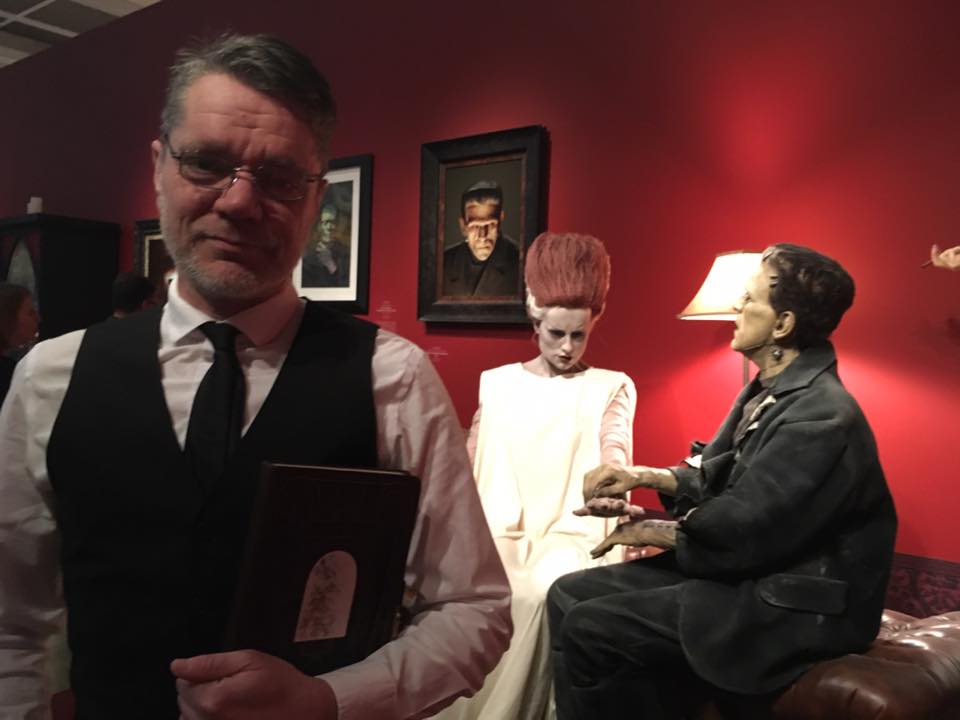
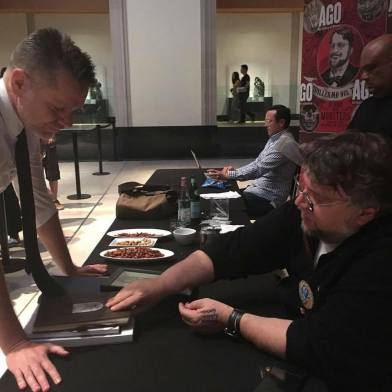
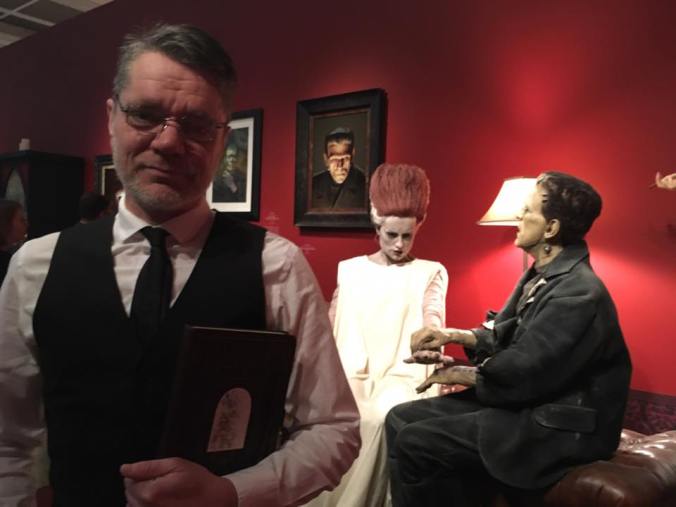
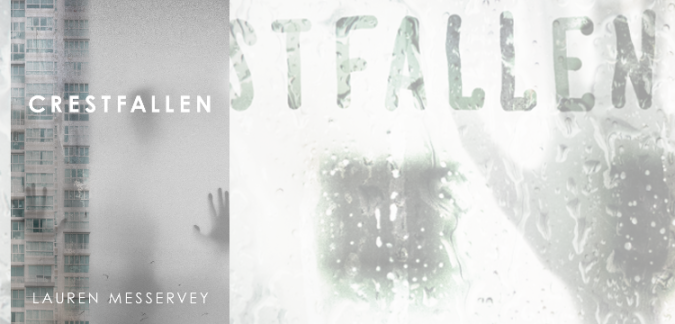
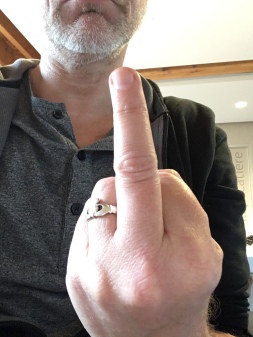 disintegration, accelerated and visible to the naked eye. In every sore muscle, in every numb extremity, in the reminder that I am “incomplete”. I’m not doing this for pity or to eventually dispense some sunny-side-of-the-street bromides about how “it’ll get better” and to “keep your chin up”. Because fuck that. This sucks. I’m sharing this with anyone else going through this to say it’s okay to be angry and hurt and sad. I’m sharing this to say “guys, there’s no shame in this”. But there is rage and frustration from having that part of us taken away without our choice. So be pissed. For as long as you need and as long as it takes. Maybe you push through all this and come out better on the other side, new men with a new perspective. Or maybe you don’t. Maybe it will finally break you and you’ll just close off.
disintegration, accelerated and visible to the naked eye. In every sore muscle, in every numb extremity, in the reminder that I am “incomplete”. I’m not doing this for pity or to eventually dispense some sunny-side-of-the-street bromides about how “it’ll get better” and to “keep your chin up”. Because fuck that. This sucks. I’m sharing this with anyone else going through this to say it’s okay to be angry and hurt and sad. I’m sharing this to say “guys, there’s no shame in this”. But there is rage and frustration from having that part of us taken away without our choice. So be pissed. For as long as you need and as long as it takes. Maybe you push through all this and come out better on the other side, new men with a new perspective. Or maybe you don’t. Maybe it will finally break you and you’ll just close off.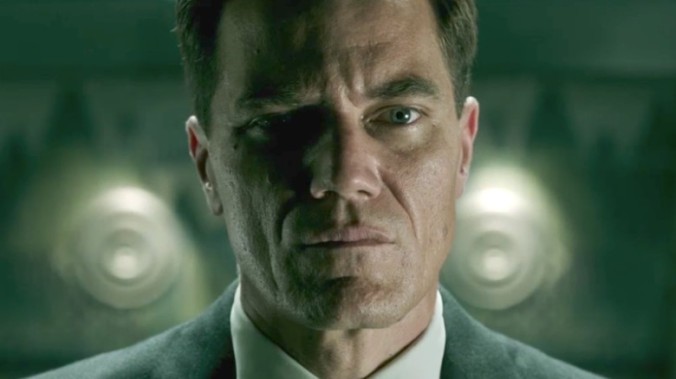
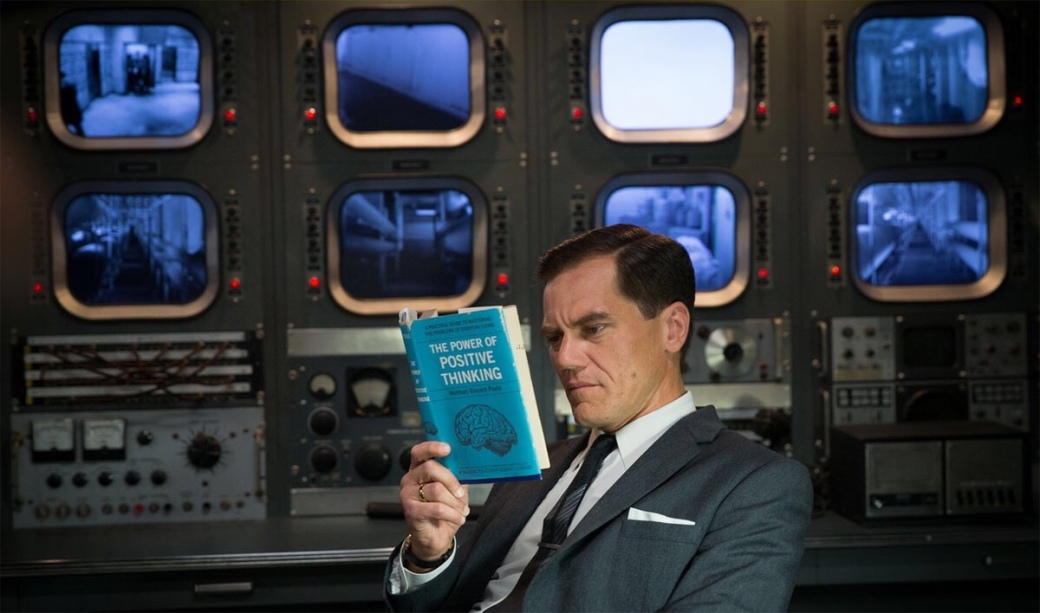 As Occam Aerospace’s Chief of Security, Strickland is the man of the hour, the hero of his own story. Having captured the film’s amphibious Amazonian “Asset”, Strickland carries himself with the air of a decorated war hero: rigid, shoulders back, his tall frame restrained in a tailor-made suit that keeps him tight and streamlined. His life at home is Rockwellian perfection, his family of the prototypically nuclear variety. He has a doting and beautiful wife, a daughter & son and a home-cooked meal waiting for him when he walks in the door. Cold War-era suburban perfection. And none of it seems to make him happy.
As Occam Aerospace’s Chief of Security, Strickland is the man of the hour, the hero of his own story. Having captured the film’s amphibious Amazonian “Asset”, Strickland carries himself with the air of a decorated war hero: rigid, shoulders back, his tall frame restrained in a tailor-made suit that keeps him tight and streamlined. His life at home is Rockwellian perfection, his family of the prototypically nuclear variety. He has a doting and beautiful wife, a daughter & son and a home-cooked meal waiting for him when he walks in the door. Cold War-era suburban perfection. And none of it seems to make him happy.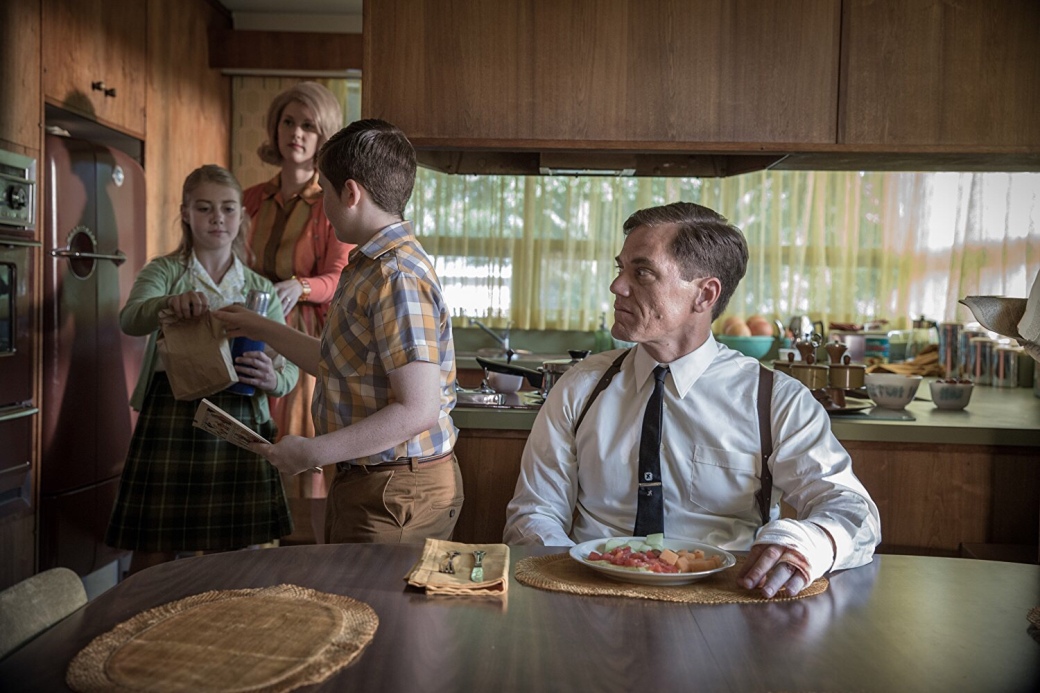
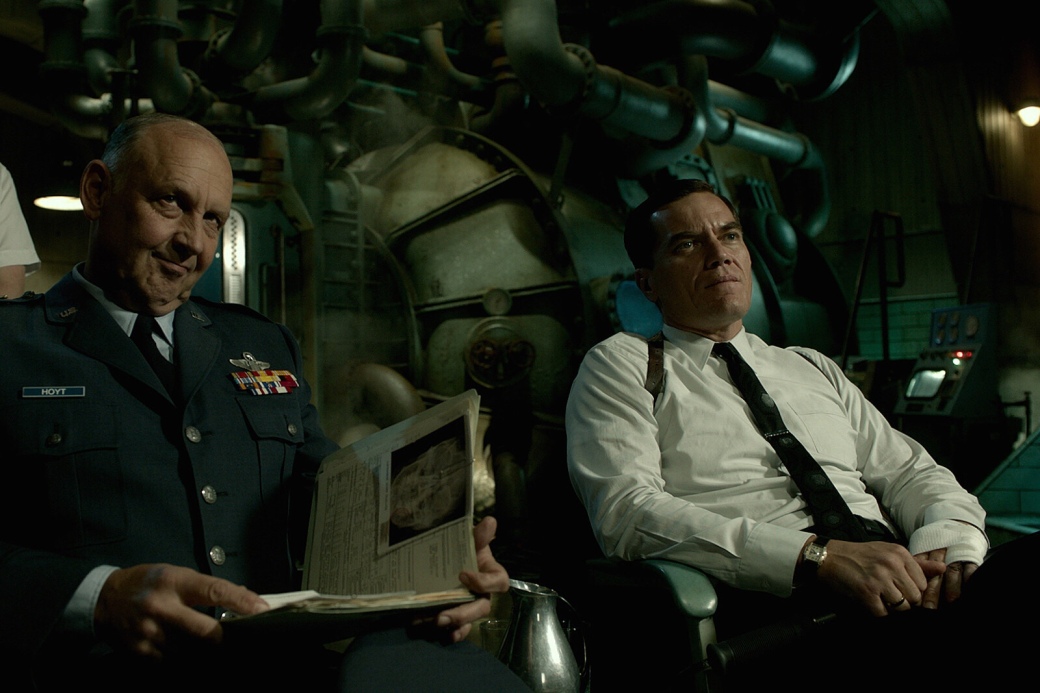
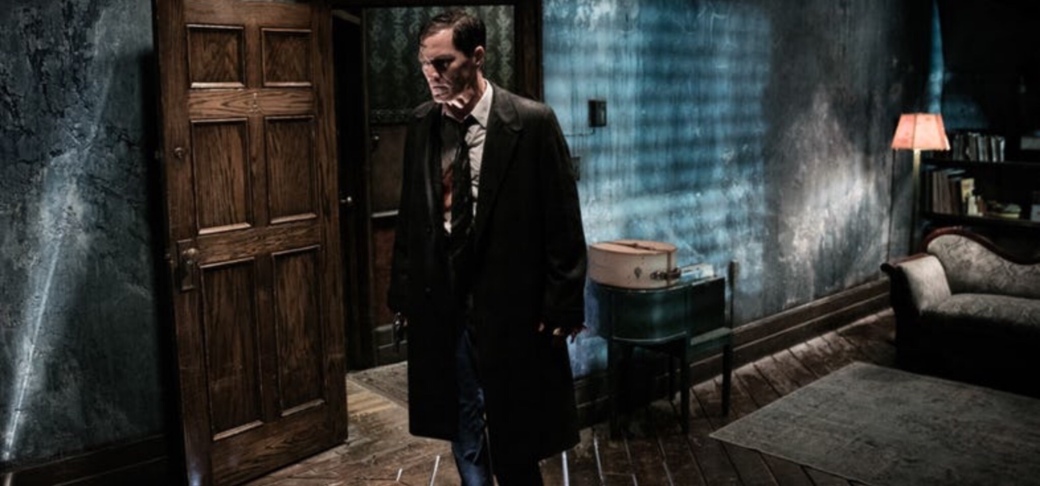
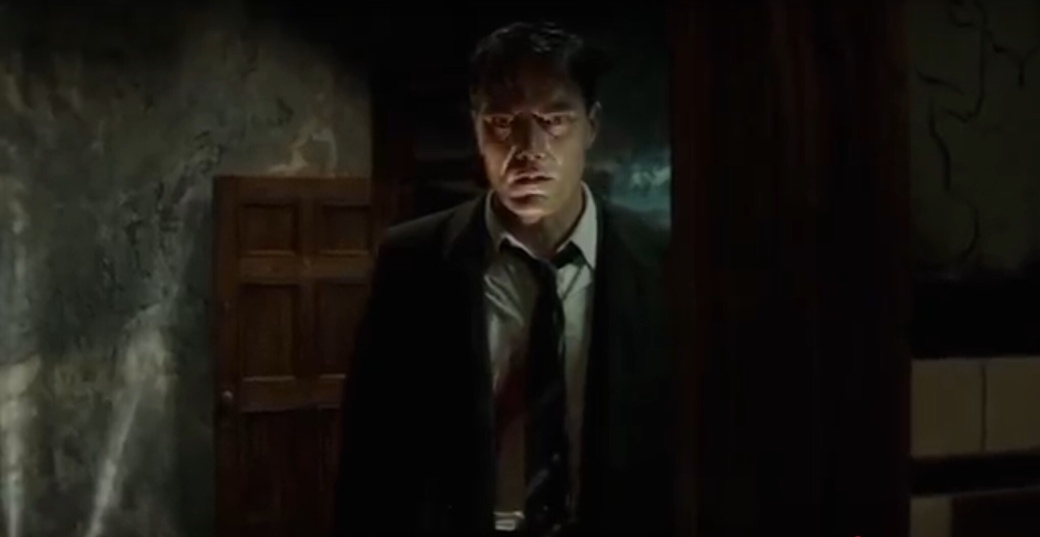

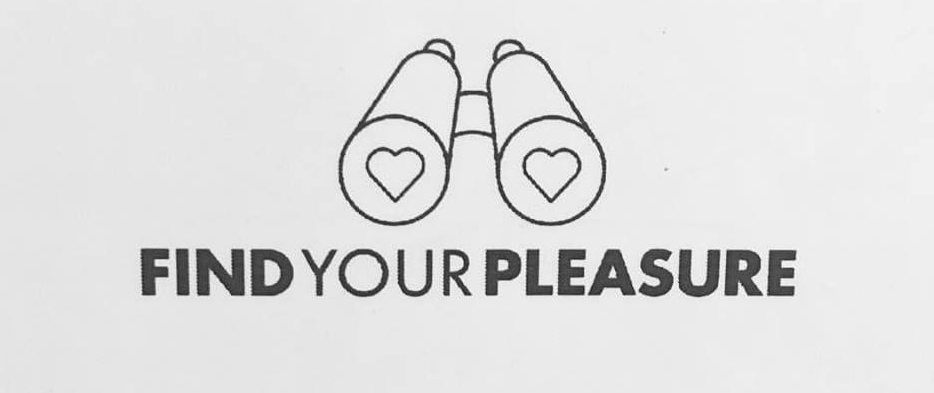
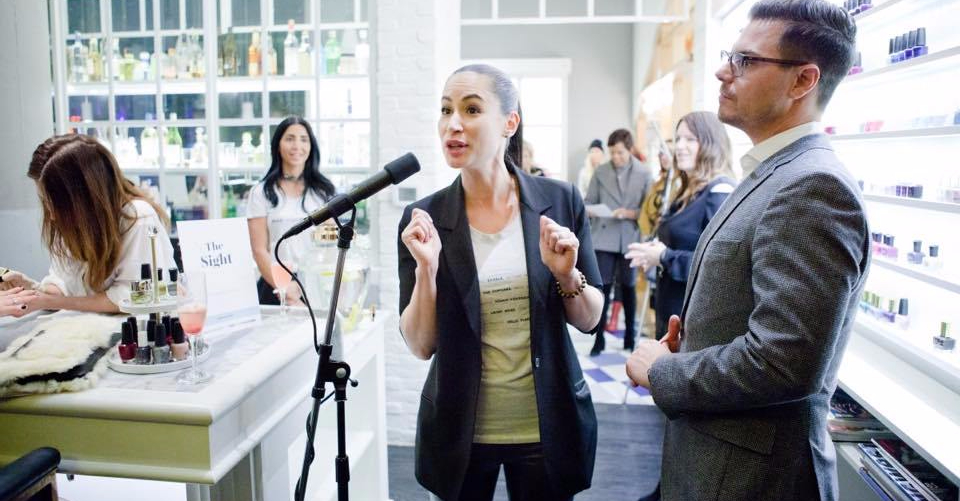


 Emma: Oh God, no. No, I wasn’t even prepared for the violence here – it was brutal! When I first heard about Pan’s Labyrinth, I had a completely different idea what it was about. I thought it would be about this girl who ends up in this other world and she has to escape from these creatures who are horrific. I thought would be like Alice In Wonderland, but with evil creatures and it’s not like that at all! The monsters, the other world, they’re not the bad guys at all.
Emma: Oh God, no. No, I wasn’t even prepared for the violence here – it was brutal! When I first heard about Pan’s Labyrinth, I had a completely different idea what it was about. I thought it would be about this girl who ends up in this other world and she has to escape from these creatures who are horrific. I thought would be like Alice In Wonderland, but with evil creatures and it’s not like that at all! The monsters, the other world, they’re not the bad guys at all. Ron: I think Baquero was so natural in this film and so believable. When she’s being chased by The Pale Man, like we talked about earlier, her fear wasn’t hysterical or over-dramatic. It was how a real kid would probably react in such a scenario: mute, wide-eyed and frantic.
Ron: I think Baquero was so natural in this film and so believable. When she’s being chased by The Pale Man, like we talked about earlier, her fear wasn’t hysterical or over-dramatic. It was how a real kid would probably react in such a scenario: mute, wide-eyed and frantic.